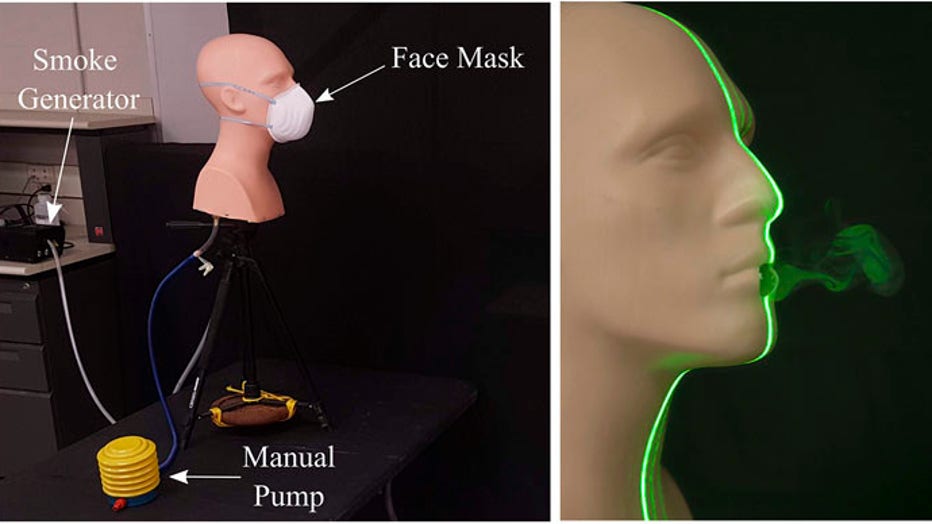Study shows effectiveness of different types of masks against COVID-19
ORLANDO, Fla. - A study from Florida Atlantic University showed the effectiveness of wearing different kinds of masks to combat the coronavirus infection.
One thing the study made very clear was the importance of wearing a mask to stop the spread of COVID-19, but it went a step further in showing which masks were more effective than others.
The setup looked like a smoke generator sending a gas that mimicked human breath through a dummy's mouth, simulating a cough.
An unmasked cough eventually sent potentially disease-carrying particles up to 12 feet away in the study.
“The larger the droplets, the greater the risk that if a person is sick that they carry the virus,” said Professor Manhar Dhanak, the Florida Atlantic University professor who headed the study.

Dhanak and his team put different kinds of masks on the mannequin.
A bandana allowed droplets nearly 4 feet away from the face.
A folded homemade mask was better, sending cough particles just over a foot away.
Then, researchers put on the stitched cotton mask that's become increasingly popular, and it worked well, with droplets going only a couple of inches.
“People may be looking to buy a mask that's a quality mask,” Dhanak said. “Quality matters in what we found, in terms of how well the mask performs.”
Dhanak said the way it fitted was also important.
“With all of these masks, one of the things that happens is that the side of the mask, where it fits your face, how well it's worn, affects the amount of leakage that happens from the side,” he said.
Dr. Candice Jones, an Orlando Physician, said the study proved how important masks were to stopping COVID-19.
“We need to get back to what works. We need to social distance, wear our masks, and if you don't want to do that -- or can't do that -- still be staying at home,” she said.
As for disposable medical masks, they did a good job, but not as good as the stitched cotton ones.
The medical mask allowed droplets to travel about 8 inches away from the face.

